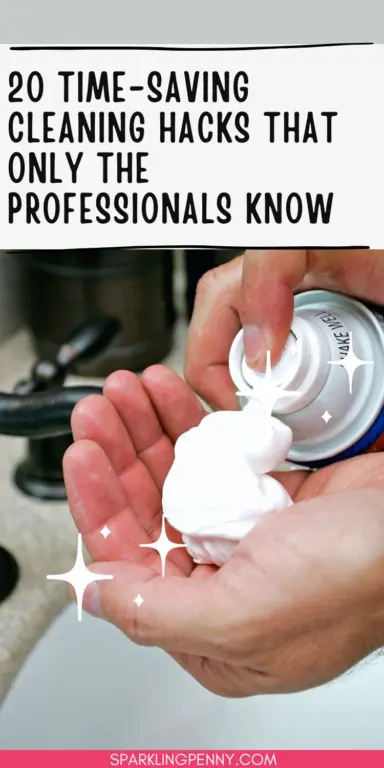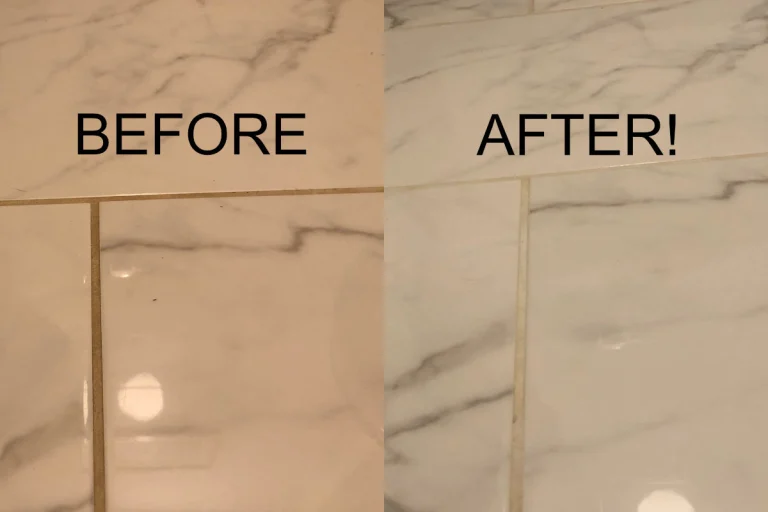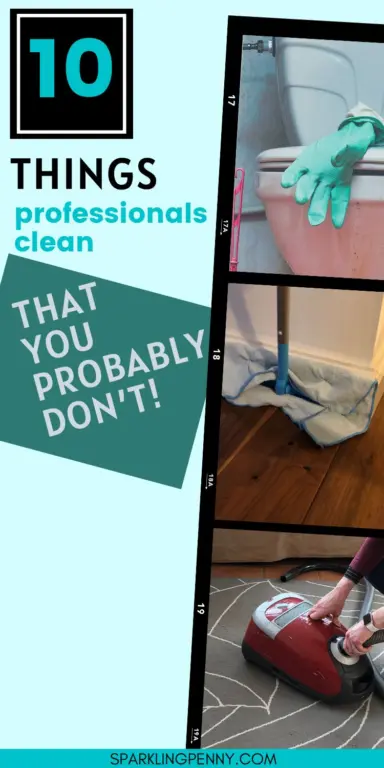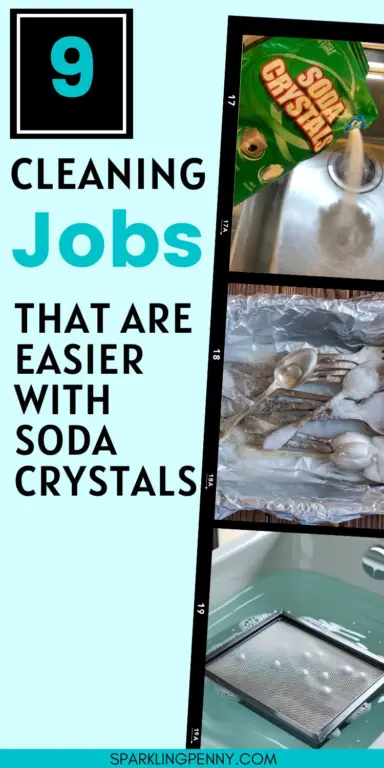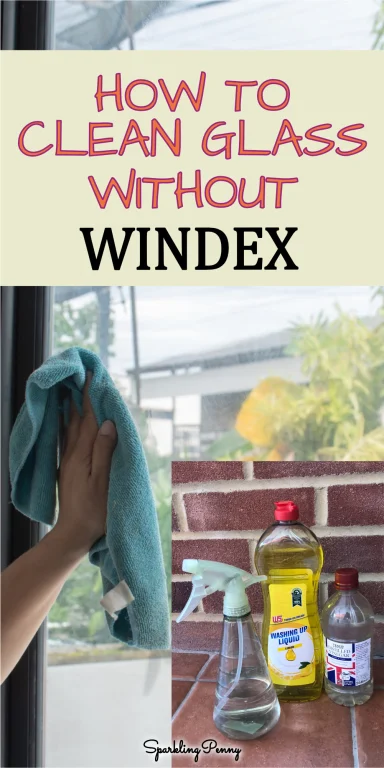Living in a hard water area can be a big nuisance if you love tea and coffee. The water in the area where I live is medium-hard, so we don’t tend to have an issue, but I lived in Hertfordshire (UK) for many years where the water is very hard. Descaling the kettle was a regular chore.
Of course, you can buy preparatory kettle descalers that you pour into your kettle and voilà, you have a clean kettle. However, I find that they leave a chemical smell, and it takes a little while for drinks to taste normal again. I would much rather use a natural cleaner that doesn’t taint the taste of my drink.
There are a couple of great natural solutions for dealing with limescale in a kettle. One of my favourite methods for descaling and cleaning a kettle is using a lemon. Another very effective option is using vinegar.
To descale and clean your kettle, fill it halfway with water and add a teaspoon of bicarbonate of soda. Boil and then leave to soak for 30 minutes. The limescale should rinse away easily.
Heads up: I sometimes use affiliate links. When you click these links and make a purchase, I may get a small commission. It won't cost you anything but it helps me to run this site.
What causes a kettle to scale up?
The scale in your kettle is actually limescale, also known as calcium carbonate. If you are wondering why your kettle has so much limescale, it is likely you live in a ‘hard water’ area where there is a higher count of calcium carbonate than average. This can cause issues with limescale build-up in your appliances including your kettle.
Limescale is natural and does not pose a risk when you drink water with a higher level of calcium carbonate. It can sometimes taste different. If you are a tea-drinker, you will know what a difference the water can make to your cuppa.
If your water is hard, I thoroughly recommend getting a water filter. Simply pass your tap water through it and then pour it into your kettle and your limescale issue will reduce. Plus, your tea and coffee will taste better.

Why should you descale your kettle?
Having limescale present in your kettle isn’t a health risk, but there are a couple of issues that can spoil your enjoyment of hot drinks.
- Drinks made in a scaled-up kettle will taste different.
- You might find gritty flakes of limescale in your drinks.
- Your daily cuppa could cost you more! Limescale build-up can affect the efficiency of the kettle.
Kettles cause a big spike in energy use when you turn them on. If you are trying to reduce your electricity bill, a kettle working at its most efficient is best for your pocket. Another thing you can do to save energy is to only fill it up to the level you need.
Fortunately, limescale build-up is pretty easy to fix using one simple ingredient that many of us have in our store or cleaning cupboard.
Here’s how to descale your kettle with baking soda or bicarbonate of soda:
How to descale a kettle with bicarbonate of soda
Any electric or stovetop kettle can be cleaned up with just bicarbonate of soda or baking soda.
It doesn’t matter what type of kettle you have, electric or stovetop. This method will also work with plastic, glass, stainless steel or chrome kettles.
Baking soda and bicarbonate of soda are the same. You can use either of these to clean your kettle. Here in the UK, we call baking soda ‘bicarbonate of soda’, don’t ask me why!
I prefer to buy my bicarbonate of soda at Wilkos because they sell it in bigger boxes than anywhere else. At the supermarket, you can buy it in small plastic containers in the baking aisle.

Here’s how to descale an electric or stovetop kettle with bicarbonate of soda
Step 1 – Rinse away any loose scales
Before you start, try to rinse away as much of the loose bits of limescale as you can.
Step 2 – Fill halfway with water
Next, fill up the kettle to the halfway point with cold water.
Step 3 – Add one teaspoon of bicarbonate of soda or baking soda

Add one teaspoon of bicarbonate of soda or baking soda to the water. Don’t wait for it to dissolve, that should happen when you boil the kettle.
Step 4 – Boil the kettle
Let the kettle boil normally and then turn it off if it isn’t automatic.
Step 5 – Soak for 30 minutes
Let the water cool and soak for at least 30 minutes. If your kettle is badly scaled up leave it for longer. You can also reboil if necessary.
Step 6 – Rinse

Pour out the baking soda solution, and the limescale should rinse away easily with the water. If you still have stubborn scale inside your kettle, repeat the above process.
Optional step – Add vinegar
If your kettle is very furred up you could also add some distilled white vinegar to the baking soda mixture. Slowly add a cup of vinegar until the bubbles die down.
How to clean a teapot with bicarbonate of soda
Bicarbonate of soda has so many uses! Here’s another of my favourite ones, cleaning a teapot.

I love tea and especially love it when it’s made in a pot. Teapots and teacups can get stained with tannin over time. Some say that you should never clean a teapot, but occasionally I like to clean mine. Baking soda or bicarbonate of soda is always perfect for this because you can get your pot perfectly clean without leaving behind a chemical taste and smell.
All I do to clean my stained teapot is to add a teaspoon of bicarbonate of soda to the pot and fill it to the brim with just-boiled water from the kettle. Make sure the water goes all the way out to the spout, so you can clean that too.
Now leave it to cool and then pour away the now brown water. Any stains leftover should rub off easily with a soft microfiber cloth.
Related reading:
How to clean a glass kettle with bicarbonate of soda
Glass kettles need cleaning just as frequently as their plastic cousins, if not more so. You can’t hide a limescale issue behind glass like you can plastic!
Fortunately, it is just as easy to clean a glass kettle with bicarbonate of soda. Simply half fill it with cold water and add a teaspoon of bicarbonate of soda or baking soda. Boil and then leave the kettle to cool. If the kettle is badly scaled up, then leave it to sit longer or boil it again.
Related reading:
Pro tip: If you have one to spare why not use a lemon to clean your kettle?
Perhaps you have one that is past its best? Don’t throw it away!
Simply cut your lemon into chunks and add it to your kettle along with some water. Then boil and then leave it to cool. The limescale will dissolve, and you won’t get a chemical aftertaste the next time you use it.
Frequently asked questions
How often should you descale a kettle?
If you live in a hard water area, then you will want to descale your kettle quite frequently. Aim for cleaning your kettle at least every couple of months. The more frequently you can do it, the easy it will be to keep on top of limescale.



